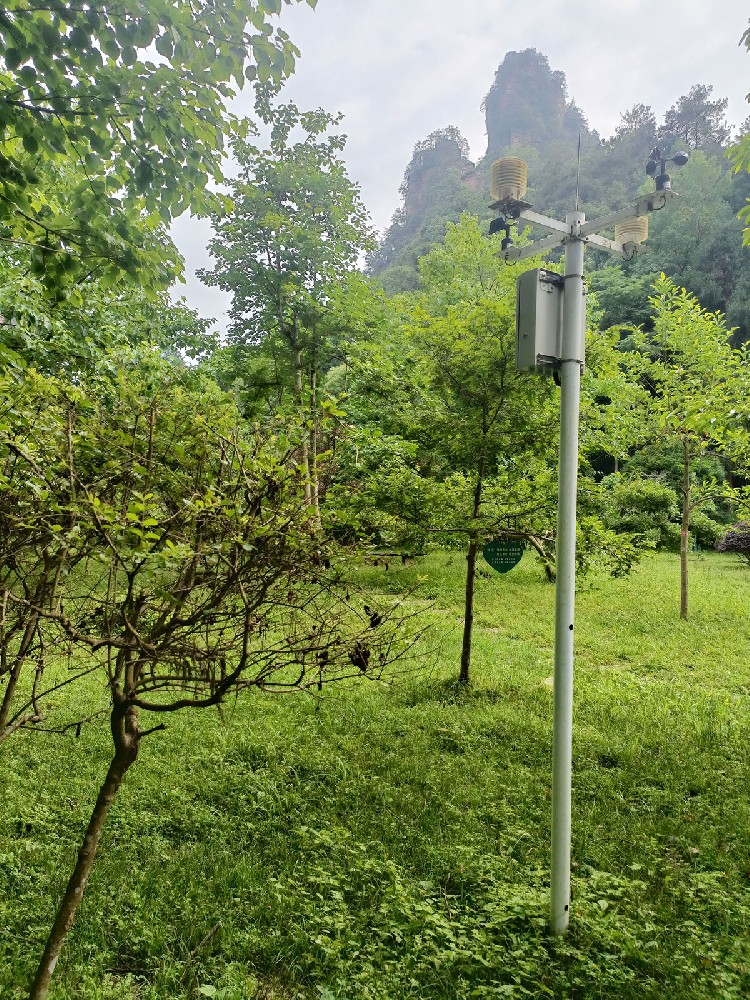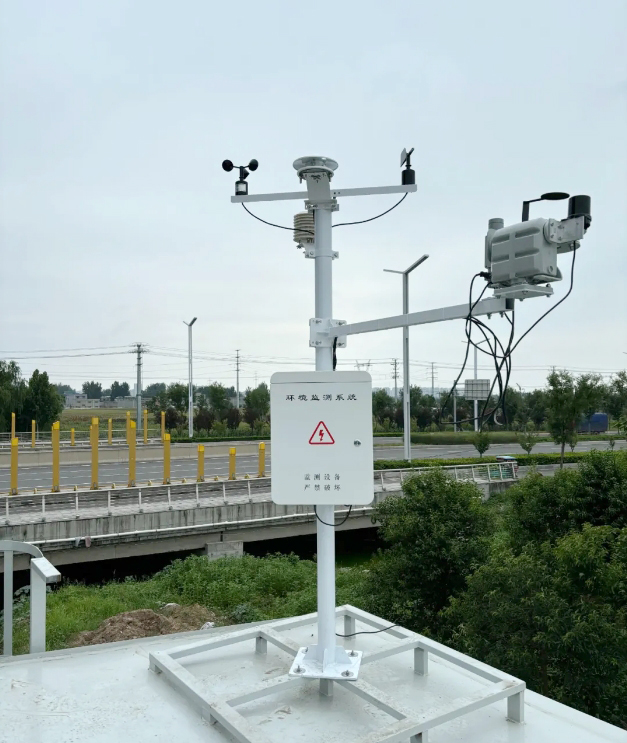

— Blogs —
—Products—
 Consumer hotline +8618073152920
Consumer hotline +8618073152920 WhatsApp:+8615367865107
Address:Room 102, District D, Houhu Industrial Park, Yuelu District, Changsha City, Hunan Province, China
Product knowledge
Time:2024-12-06 20:11:20 Popularity:234
- Temperature sensors, relative humidity sensors, barometers, wind speed and direction gauges, rain gauges, solar radiation sensors, etc. are used to measure different meteorological parameters. These sensors convert the changes in meteorological elements into electrical signals for output by sensing and measuring them.
- It is responsible for receiving the electrical signals sent by the sensors and converting them into the values of meteorological elements. In the process of data acquisition, the system will screen, check and correct the data to ensure the accuracy and reliability of the data. At the same time, the data acquisition system will also store and backup the data for subsequent analysis and use.
- A cable is used to connect the sensor and the data collector to ensure stable data transmission. This connection has the advantages of fast transmission speed, good stability, strong anti-interference ability, such as RS485 or RS232.
- Usually connected to the utility power or use other stable power supply, for the weather station to provide the energy needed for continuous operation.
- It is equipped with the functions of meteorological monitoring network management, meteorological database, statistical analysis of curves and charts, etc., and is capable of receiving, storing, processing and analyzing meteorological data. It can be a display screen built into the data logger or a computer or other display device connected to the data logger.
- Used to send collected data to remote servers or data centers, which can be wired networks or dedicated communication lines. This allows weather data to be utilized and analyzed on a wider scale.
- Data Acquisition: Sensors monitor meteorological parameters in real time and convert these parameters into electrical signals.
- Data Transmission: The electrical signals collected by the sensors are transmitted to the data collector through the transmission cable.
- Data processing: The data collector processes the received signals, such as calibration, calculation, etc., and stores the processed data.
- Data Display and Recording: The data can be displayed on the local display of the weather station, recorded in the data logger, or sent to the remote system through communication equipment.
- Data communication: Through wired communication, the data are sent to the weather center or other data processing platforms.

- High stability: compared with wireless connection, wired connection is less subject to external interference and data transmission is more stable.
- Fast data transmission speed: the data rate of wired transmission is usually faster than wireless transmission.
- Suitable for complex environments: wired weather stations are more reliable in places with strong electromagnetic interference or where wireless signals cannot cover.
- Accurate and reliable: wired weather station can accurately monitor and collect data on meteorological factors, and the data are accurate and reliable.
- Strong real-time: wired weather station can monitor and transmit data in real time, reflecting the changes of weather factors in time.
- Powerful functions: wired weather station can integrate a variety of meteorological observation, environmental monitoring and data processing functions, which can meet the needs of different fields.
- Suitable for fixed location: It is suitable for long-term fixed weather observation in specific locations, such as weather stations, airports, scientific research institutions.
- Relatively low maintenance costs: Although initial installation may involve cabling costs, long-term operation and maintenance is relatively simple, mainly consisting of regular calibration of sensors and cable inspection.
- Expandability: the monitoring program can be expanded by adding sensor nodes, but corresponding cabling work is required.
- High installation and maintenance costs: need to lay cables, installation and maintenance is more complex and expensive.
- Poor flexibility: the sensor position is fixed, not easy to move and adjust.
- Restricted by terrain: it is more difficult to install and use in complicated terrain or places far away from power supply.
Wired weather station is widely used in many fields, including but not limited to:
- Urban weather observation: for urban weather forecasting and climate research.
- Agricultural monitoring: to monitor the microclimate of farmland and guide agricultural production.
- Construction field: monitoring and analyzing the meteorological environment, providing important basis and guarantee for building design and construction.
- Transportation: monitoring road surface temperature, wind, etc., providing road operation safety guarantee.
- Aviation field: provide strong guarantee for flight safety, and play an important role in high-altitude flight and air traffic control.
- Scientific research institutions: used for meteorological scientific research and experiments.

- Stability: wired weather station has obvious advantages in the stability and security of data transmission, especially suitable for complex electromagnetic environment or signal shielding serious areas.
- Flexibility: Wireless weather stations are easy to deploy and move, but data transmission may be affected under strong electromagnetic interference or extreme weather conditions.
- Cost of weather station: Wired weather stations have high initial installation costs but relatively low long-term operation and maintenance costs; the opposite is true for wireless weather stations.
Summary
Wired weather stations play an important role in professional weather observation due to their reliable data transmission and long-term observation stability. Despite the disadvantages of high installation cost and poor flexibility, wired weather stations are still the preferred weather monitoring solution in applications requiring high accuracy and continuous data recording. Its wide range of application scenarios and powerful functions make it a key tool in many fields, such as meteorological research, agricultural management, environmental monitoring, and aviation safety.
Related recommendations
Sensors & Weather Stations Catalog
Agriculture Sensors and Weather Stations Catalog-NiuBoL.pdf
Weather Stations Catalog-NiuBoL.pdf
Related products
 Combined air temperature and relative humidity sensor
Combined air temperature and relative humidity sensor Soil Moisture Temperature sensor for irrigation
Soil Moisture Temperature sensor for irrigation Soil pH sensor RS485 soil Testing instrument soil ph meter for agriculture
Soil pH sensor RS485 soil Testing instrument soil ph meter for agriculture Wind Speed sensor Output Modbus/RS485/Analog/0-5V/4-20mA
Wind Speed sensor Output Modbus/RS485/Analog/0-5V/4-20mA Tipping bucket rain gauge for weather monitoring auto rainfall sensor RS485/Outdoor/stainless steel
Tipping bucket rain gauge for weather monitoring auto rainfall sensor RS485/Outdoor/stainless steel Pyranometer Solar Radiation Sensor 4-20mA/RS485
Pyranometer Solar Radiation Sensor 4-20mA/RS485
Screenshot, WhatsApp to identify the QR code
WhatsApp number:+8615367865107
(Click on WhatsApp to copy and add friends)